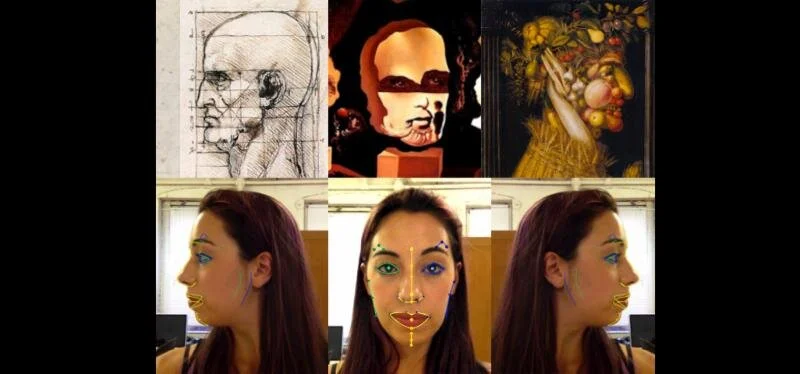Faces, Genes, Patterns, Stories
Alberta Chu and Murray O. Robinson
Monday, April 27, 2015
7:00-8:00 pm
MIT, Bartos Theatre, List Visual Arts Center, 20 Ames St E15, Cambridge, MA 02139
Filmmaker Alberta Chu and research scientist Murray Robinson discussed the ideas that led to their current collaboration: FaceTopo. This project stems from their interest in the genetics of faces and a big question - "A clear but genetically complex trait, could one's face possibly represent a visible proxy for one's genome? Is it possible to eschew the DNA part and just map faces?"
They have set out to build a taxonomy of human adult faces by conceiving a global citizen project to crowd-source 3D face data from users via a mobile App. Chu and Robinson challenge the notion of ideal beauty. For them, data is beautiful: the more diverse facial data that they can obtain from different people(s) globally, the more accurate their study will be. By collecting thousands of faces as varied as possible and analyzing the data, they aim to discover relationships that are significant to all faces.
Dr. Robinson has spent more than two decades in biotech research and executive roles working to identify and develop targeted cancer therapies. Through his work on cancer, Murray was drawn to the emerging field of genomics, where he recently launched an effort to biologically annotate the genome. Combining genes, algorithms, data visualization and lots of data, Dr. Robinson builds tools to better understand how the subtle variation in each of our genomes contributes to our unique traits.
Alberta Chu investigates the intersections of art, science, technology, and design. Chu has inspired global audiences with stories of art and science collaboration, techno-artists, technology subcultures, innovation, and the creation of monumental artworks. Recent projects include documentaries about an MIT Media Lab Hackathon and the creation of the "Breaking Wave" kinetic sculpture (Biogen, Cambridge, MA). Chu has a background in biology and has produced popular science programming for television. She is excited to explore the possibilities of FaceTopo as a platform to form personal narratives.


